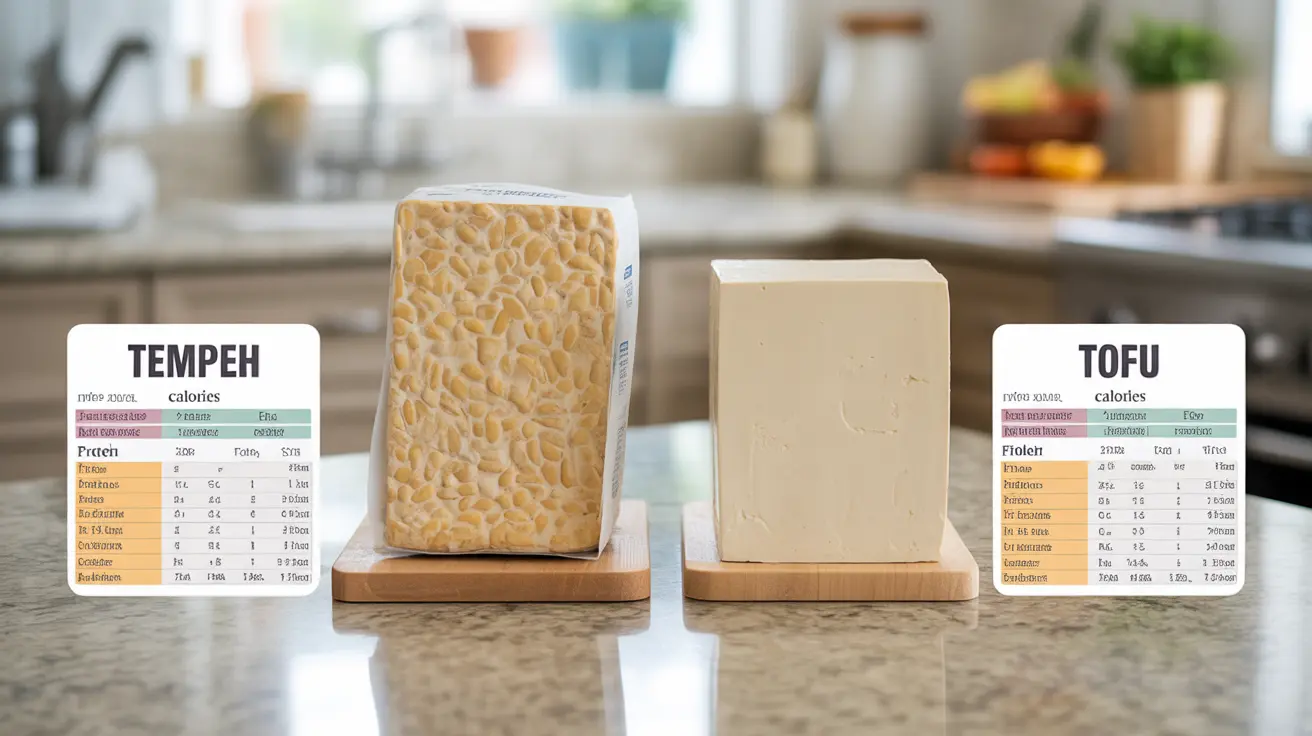For those following a plant-based diet or looking to incorporate more meat alternatives into their meals, understanding the differences between tempeh and tofu is crucial. Both these soy-based products offer unique nutritional benefits and versatile cooking applications, but they differ significantly in their composition, texture, and health benefits.
In this comprehensive guide, we'll explore the key differences between tempeh and tofu, helping you make an informed choice based on your nutritional needs and dietary goals.
Understanding the Basics
Tempeh and tofu are both derived from soybeans, but their production processes and resulting characteristics are quite different. Tempeh is made by fermenting whole soybeans and forming them into a dense cake, while tofu is created by coagulating soy milk and pressing the curds into blocks.
Nutritional Profile Comparison
Protein Content
When it comes to protein content, tempeh takes the lead. A 100-gram serving of tempeh contains approximately 20 grams of protein, while the same amount of firm tofu provides about 10-12 grams. This makes tempeh an excellent choice for those prioritizing protein intake in their diet.
Caloric Content
Tempeh is more calorie-dense than tofu. A 100-gram serving of tempeh contains around 195 calories, while the same amount of firm tofu has approximately 70-100 calories. This difference is important to consider when planning meals for specific dietary needs.
Fiber and Other Nutrients
Tempeh contains significantly more fiber than tofu, with about 9 grams per 100-gram serving compared to tofu's minimal fiber content. Both products are good sources of calcium, but tofu typically contains more calcium due to the calcium sulfate used in its production process.
Digestive Health Benefits
Tempeh's Probiotic Advantage
Due to its fermentation process, tempeh offers unique probiotic benefits that aren't present in tofu. The fermentation also makes nutrients more bioavailable and can improve digestibility for some people.
Digestibility Comparison
The fermentation process of tempeh can make it easier to digest for some people who have difficulty with other soy products. Tofu, while generally well-tolerated, may be harder for some individuals to digest.
Choosing Between Tempeh and Tofu
For Weight Management
If you're watching your calorie intake but still want to maintain a high-protein diet, tofu might be the better choice. Its lower calorie content while still providing decent protein makes it an excellent option for weight management.
For Muscle Building
Tempeh's higher protein content and complete amino acid profile make it an excellent choice for those looking to build or maintain muscle mass on a plant-based diet.
Frequently Asked Questions
What is the difference in nutritional benefits between tempeh and tofu?
Tempeh offers higher protein content (20g vs 10-12g per 100g), more fiber (9g vs minimal), and probiotic benefits due to fermentation. Tofu typically has fewer calories and more calcium but lacks the fermentation benefits of tempeh.
Which has more protein, tempeh or tofu, and by how much?
Tempeh contains approximately 20 grams of protein per 100-gram serving, while tofu contains 10-12 grams per 100-gram serving. This means tempeh has nearly twice the protein content of tofu.
How do tempeh and tofu compare for calories, calcium, and fiber content?
Tempeh has more calories (195 per 100g) and fiber (9g per 100g) than tofu (70-100 calories, minimal fiber). However, tofu typically has higher calcium content due to its production process using calcium sulfate.
Can tempeh or tofu help with digestive health or offer probiotic benefits?
Tempeh, being a fermented food, offers probiotic benefits and can support digestive health. Tofu, while nutritious, doesn't provide probiotic benefits as it's not fermented.
Which is a better plant-based protein option for someone watching their calorie intake, tempeh or tofu?
Tofu is the better option for those watching their calorie intake, as it provides good protein content (10-12g per 100g) while being lower in calories (70-100 calories per 100g) compared to tempeh's higher caloric content.




